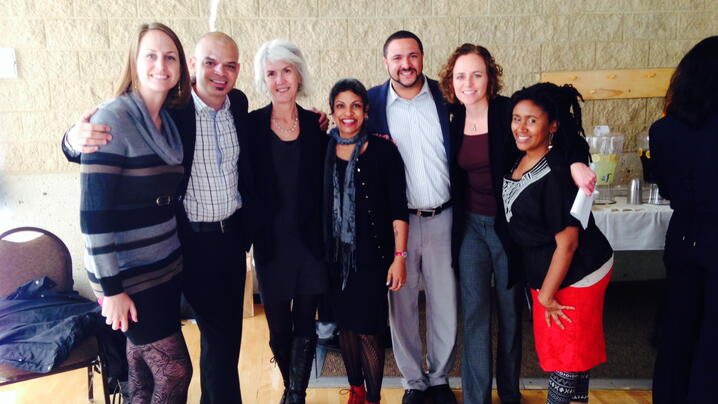
When it comes to values in the United States, we are a country of contradictions. Daily, millions of school children recite the pledge – “With liberty and justice for all.” At sports events attended by hundreds of thousands of people each week, we sing along with the national anthem, ending with “…the land of the free and the home of the brave.”
Freedom, equality and justice are important values in the United States, but there are clear differences between our aspirations and our goals, especially when it comes to race. While explicit acts of discrimination are illegal, governmental policies and practices include “race-neutral” approaches that still perpetuate racial inequities, often without explicit intent. Despite progress in addressing explicit acts of racism, racial inequities continue to be deep, pervasive and persistent across the country in all indicators for success, including in education, criminal justice, jobs, housing, public infrastructure, and health. Clearly, focusing on individual acts of bigotry or discrimination is not sufficient.
The Civil Rights movement, led by broadly organized communities, demanded changes in government and resulted in many successful achievements, including passage of the Civil Rights Act, the Voting Rights Act, the Fair Housing Act, and others. Government was positioned to take on a new identity and role, but unfortunately, racism morphed into a new form.
There is a new opportunity at-hand. Currently, a growing number of governmental jurisdictions have an increased understanding of the impact of institutional biases in perpetuating inequities. We have begun to see the potential for government to be a powerful proactive force for equity and inclusion.
For those of us who believe that effective and efficient government means equity and inclusion for all, it is vital that our values be translated into behaviors and operationalized. And it is vital that we organize intentionally within government so that we are transforming government; we are creating a new vision for government that truly is “by the people and for the people.”
The Government Alliance on Race and Equity is a national network of governments working to achieve racial equity and advance opportunities for all. We use a three-prong approach:
1) We support a cohort of jurisdictions that are at the forefront of work to achieve racial equity
2) We offer pathways for new jurisdictions to begin doing racial equity work
3) We support and build local and regional collaborations that are broadly inclusive and focused on achieving racial equity
It is an incredibly exciting time to be working on racial equity within government. The Government Alliance on Race and Equity is seeing more and more jurisdictions that are making a commitment to achieving racial equity, focusing on the power and influence of their own institutions, and working in partnership across sectors and with the community to maximize impact in the community. From Seattle, WA to Dubuque, Iowa and many places between, government’s proactive work on racial equity is leveraging significant change, setting the stage for the achievement of racial equity in our communities.
Opportunities to get involved:
- Join the cohort of jurisdictions at the forefront. Share best practices, peer-to-peer learning, and academic resources to strengthen our collective work.
- Join a new cohort that the Alliance will be launching in 2015, focusing on jurisdictions at that initial stage. The cohort will be supported by racial equity training curricula, infrastructure models, tools, and sample policies.
- Get assistance with specific topics, such as racial equity training, racial equity tools, model policies, or communications coaching.
- Build cross-jurisdictional partnerships with other institutions and communities.
For more information, contact Government Alliance on Race and Equity Director, Julie Nelson – (206) 816-5104,Julie.Nelson@racialequityalliance.org.
To learn how your peers are successfully advancing social equity in their communities, see the report “Advancing Social Equity Goals to Achieve Sustainability,” and accompanying case studies. There will also be an Equity and Empowerment track at the next ICMA Annual Conference in Seattle, WA, September 27-30, 2015.
New, Reduced Membership Dues
A new, reduced dues rate is available for CAOs/ACAOs, along with additional discounts for those in smaller communities, has been implemented. Learn more and be sure to join or renew today!
